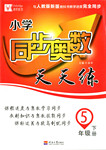题目内容
【题目】Directions: Translate the following sentences into English, using the words given in the brackets.
【1】应该采取措施阻止新病毒的蔓延。(stop)
_______________
【2】在澳大利亚期间,他养成了每天和父母视频通话的习惯。(habit)
_______________
【3】与成年人相比,年轻人更容易犯错误是因为他们不够成熟,缺少经验。(likely)
_______________
【4】近年来,电子白板系统应高效灵活地运用于课堂教学的想法已被广泛接受,难道不是吗? (idea)
_______________
【答案】
【1】Measures/ Steps/action(s) should be taken to stop new viruses (from) spreading.
【2】He developed/ formed/got into the habit of making video calls with his parents during his stay in Australia.
【3】Compared with adults, young people are more likely to make mistakes for their immaturity and lack of experience.
【4】In recent years, the idea that electronic whiteboard system should be applied to classroom teaching efficiently and flexibly has been widely accepted, hasn’t it?
【解析】
【1】考查语态和非谓语动词。分析句子可知,措施应该被采取,用被动语态。主语为Measures/ Steps/action(s),谓语为should be taken,阻止新病毒做目的状语,可用不定式to stop。再根据其它汉语提示。故翻译为:Measures/ Steps/action(s) should be taken to stop new viruses (from) spreading.。
【2】考查动词和时态。分析句子,根据during his stay in Australia应用一般过去时,养成习惯为developed/ formed/got into the habit。主语为He,谓语为developed/ formed/got into,宾语the habit。再根据其它汉语提示。故翻译为:He developed/ formed/got into the habit of making video calls with his parents during his stay in Australia.。
【3】考查固定搭配。分析句子,更容易去做翻译为be likely to do。主语为young people,谓语为are more likely,宾语to make mistakes。再根据其它汉语提示。故翻译为:Compared with adults, young people are more likely to make mistakes for their immaturity and lack of experience.。
【4】考查时态语态和反义疑问句。分析句子可知,依据in recent years用现在完成时,想法被接受用被动语态,反义疑问句的助动词用have或has。主语为the idea,谓语为has been accepted。再根据其它汉语提示。故翻译为In recent years, the idea that electronic whiteboard system should be applied to classroom teaching efficiently and flexibly has been widely accepted, hasn’t it?

 同步奥数系列答案
同步奥数系列答案